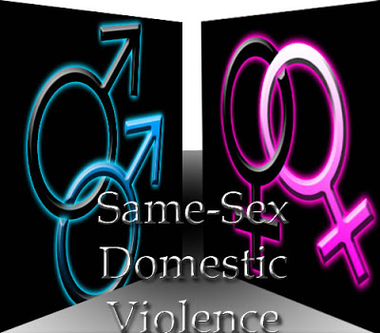S.C. state court: Domestic violence law unfair to gay couples

COLUMBIA, S.C. (AP) — A law that perhaps unintentionally failed to protect domestic violence victims in same-sex relationships appears to be unconstitutional, and now South Carolina's high court is trying to decide what to do.
The court was asked on Wednesday to weigh in after a woman tried to get a protective order against her former fiancée, also a woman, and was denied. The state's domestic violence law defines "household members" as a spouse, former spouse, people with a child in common, or specifically men and women who are or have lived together — but not unmarried same-sex couples.
The issue has come up in at least one other state since the U.S. Supreme Court's decision last summer legalizing gay marriage nationwide. Earlier this month, the Ohio Supreme Court adopted the use of gender-neutral references in family court cases, a ruling that covers divorce, child support and domestic violence. Other states, such as California and Massachusetts, proactively changed the language in their laws, according to Beth Littrell, a senior attorney with Lambda Legal.
South Carolina Chief Justice Costa Pleicones said the handling of domestic violence situations isn't as clear as the gay marriage ruling from the higher court case.
"The only people who are not protected under this statue right now are same-sex cohabiters or former cohabiters, is that it?" Pleicones said in court Wednesday, according to a video of arguments archived on the court's website. "This statute is pretty clearly unconstitutional in its discriminatory impact upon same-sex couples. So tell me, what's the remedy?"
Bakari Sellers, an attorney for the woman who brought the case, argued the domestic violence provision can be changed to include all couples.
"The state has a legal interest in protection of all its citizens from domestic abuse," he said.
More than two decades ago, Sellers noted, state lawmakers intentionally made the law restrictive to male-female couples. This change, Associate Justice Don Beatty said, makes clear that lawmakers were specifically keeping same-sex, unmarried couples from being included under South Carolina's criminal domestic statute.
"Otherwise, they would not have changed the word from 'person' to 'male and female,'" he said.
State prosecutor Emory Smith said those changes were part of a "general cleanup" of the law, the overall intent of which was to protect people. He said the law doesn't need to be completely rewritten. Instead, Smith suggested, the court is allowed to interpret the law as reading "male or female," not "male and female" — thereby meaning the law protects same-sex couples, too.
Littrell, of Lambda Legal, said it's time for such laws to be interpreted in gender-neutral ways instead of being struck down and forcibly rewritten entirely. Or, in the alternative, state lawmakers can be proactive, before a lawsuit is brought, and make the changes themselves.
"It's unfortunate when legislatures refuse to be proactive in terms of recognizing that marriage equality is the law of the land," she said.
The South Carolina court will issue its ruling later, likely in several months.
By MEG KINNARD, Associated Press. Copyright 2016 The Associated Press. All rights reserved. This material may not be published, broadcast, rewritten or redistributed.
The Gayly - 3/24/2016 @ 3:15 p.m. CST





